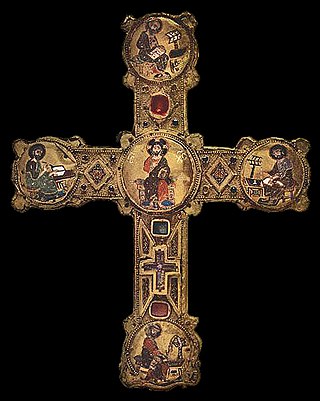Related Research Articles
Carlos is a masculine given name, and is the Maltese, Portuguese and Spanish variant of the English name Charles, from the Germanic Carl.
Pérez or Perez, as most commonly written in English, is a Castilian Spanish surname. Peretz or Perets is also common among people of Sephardi Jewish descent, and is the 4th most common surname in Israel, most common surname not of Hebrew language origin, and most common surname exclusive to a single Jewish ethnoreligious subgroup.
Luis is a given name. It is the Spanish form of the originally Germanic name Hludowig or Chlodovech. Other Iberian Romance languages have comparable forms: Luís in Portuguese and Galician, Lluís in Aragonese and Catalan, while Luiz is archaic in Portugal, but common in Brazil.
Miguel is a given name and surname, the Portuguese and Spanish form of the Hebrew name Michael. It may refer to:
Guzmán or de Guzmán is a Spanish surname. The Portuguese language equivalent is Gusmão.
Morales is a Spanish surname. Notable people with the surname include:
José is a predominantly Spanish and Portuguese form of the given name Joseph. While spelled alike, this name is pronounced very differently in each of the two languages: Spanish ; Portuguese.
Márquez or Marquez is a surname of Spanish origin, meaning "son of Marcos or Marcus". Its Portuguese equivalent is Marques.
Rodríguez is a Spanish patronymic and a common surname in Spain, Latin America. Its Portuguese equivalent is Rodrigues.

Cruz is a surname of Iberian origin, first found in Castile, Spain, but later spread throughout the territories of the former Spanish and Portuguese Empires. In Spanish and Portuguese, the word means "cross", either the Christian cross or the figure of transecting lines or ways. For example, in the Philippines, the adopted Tagalog word is rendered to "krus" in plain usage, but the Spanish spelling survives as a surname.
Soto may refer to:
Torres is a surname in the Catalan, Portuguese, and Spanish languages, meaning "towers".
Hernández is a widespread Spanish patronymic surname that became common around the 15th century. It means son of Hernán, Hernando, or Fernando, the Spanish version of the Germanic Ferdinand. Fernández is also a common variant of the name. Hernandes and Fernandes are their Portuguese equivalents.
Alejandro is the Spanish form of the name Alexander.
Vázquez is a surname of Galician origin, which later spread all over the Spanish-speaking world. Alternative spellings of the name include Vásquez or Vasques, and Vazquez or Vasquez in countries where Iberian languages are not commonly spoken.

Martínez is a common surname in the Spanish language. Martínez is the most common surname in the Spanish regions of Navarre, La Rioja, Cuenca and Murcia. There are also variations such as San Martin and Martín.
Muñoz is a Spanish-language surname—with a Portuguese-language variant (Munhoz), from Basque "muinoa" (Hill), the surname got expanded during the Reconquista with massive settlements done by citizens from Navarre and Álava in New Castile and Andalusia.
Blanco is a surname of Spanish origin, meaning "white". Notable people with the surname include:

López or Lopez is a surname of Spanish origin. It was originally a patronymic, meaning "Son of Lope", Lope itself being a Spanish given name deriving from Latin lupus, meaning "wolf". Its Portuguese and Galician equivalent is Lopes, its Italian equivalent is Lupo, its French equivalent is Loup, its Romanian equivalent is Lupu or Lupescu and its Catalan and Valencian equivalent is Llopis.
References
- ↑ Chisholm, Hugh, ed. (1911). . Encyclopædia Britannica (11th ed.). Cambridge University Press.
- ↑ Albaigès, Josep M.; Olivart, J. M. A. (1993). Diccionario de nombres de personas (in Spanish). Universitat de Barcelona. p. 149. ISBN 978-84-475-0264-6 . Retrieved 15 September 2018.